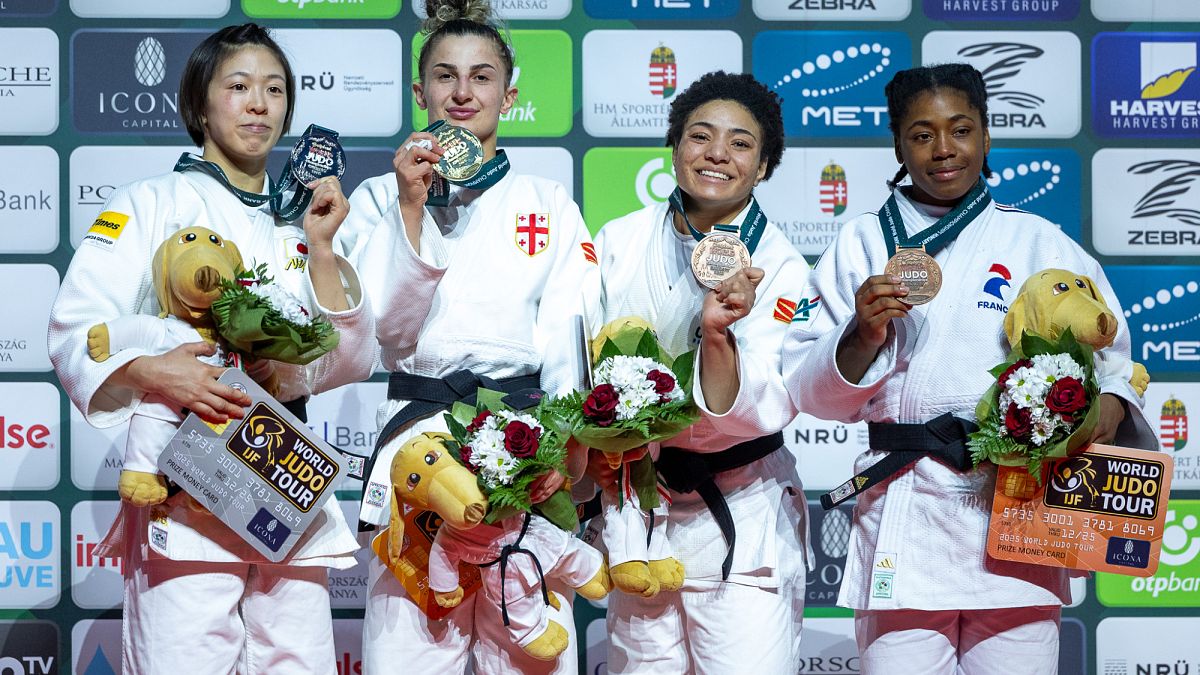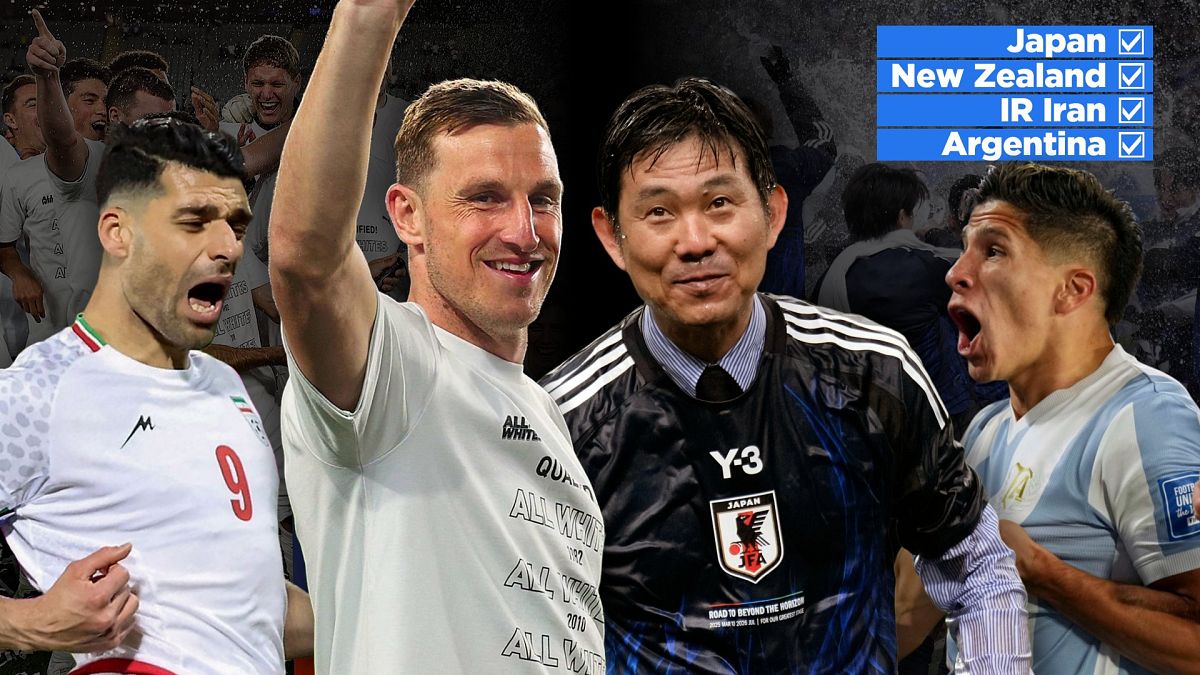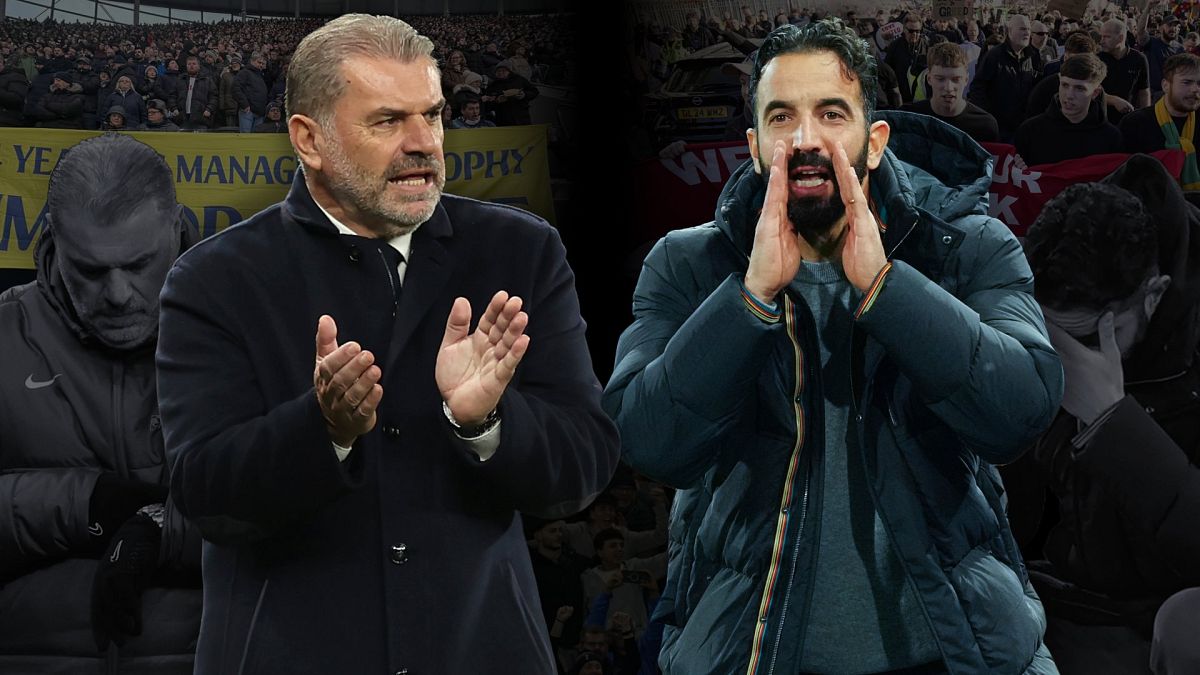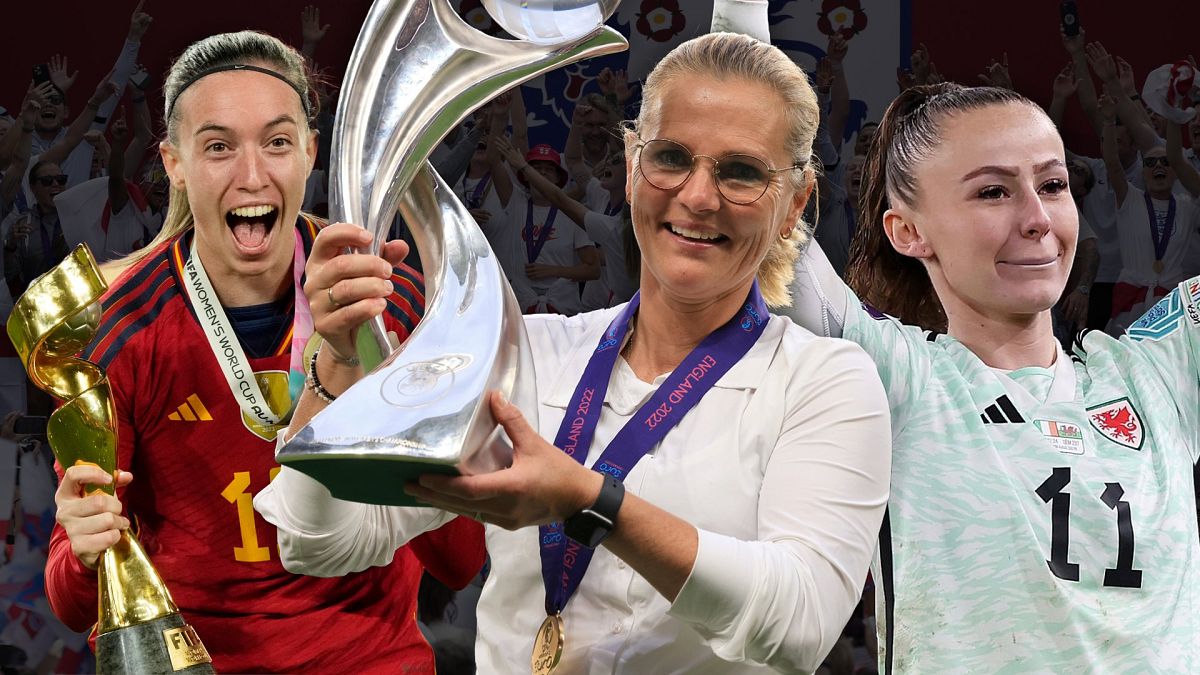How are Europe’s blue economy sectors preparing for the future?
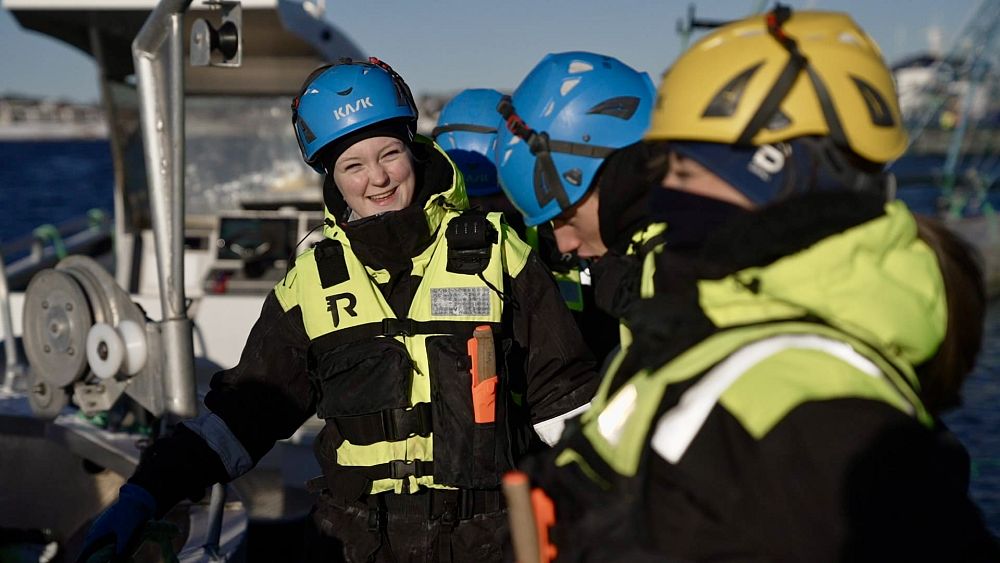
The island of Frøya off Norway’s rugged western coast is known for some of the world’s best conditions for growing salmon.
It’s also home to Guri Kunna — a pioneering school that, for decades, has been teaching kids as young as 16 to work in the fish farming industry.
Hundreds of girls and boys come here to learn everything a fish farmer needs to know today, including how to pilot a boat and take care of the fish at the real salmon farm — just a short sea trip away from the school.
“Back when I was in 10th grade, someone told me that professionals in this field were going to be in high demand, that this sector is the future. And I enjoy working out at sea, so I decided to study aquaculture,” said Sunniva Elise Johansen, a student at Guri Kunna.
“The teachers guide us through everything in the first year of the programme, but in the second year, we work more independently. That way, we can get ready for our apprenticeships at an aquaculture company over the next couple of years.”
The success of this school’s program has inspired BRIDGES, a European-funded project that improves collaboration between schools and the industry to boost skill development in the aquaculture sector across four Nordic countries.
“The sector needs skilled workers,” explained Dag Willmann, the project coordinator at BRIDGES.
“When we started to work with Iceland some years ago, they were almost desperate – no education, this industry is in low populated areas, so they needed education — fast! The BRIDGES project aims to develop the schools to be kind of hubs to foster this growth in skilled workers,” he revealed.
The school’s classrooms and laboratories are located right next to industrial companies in a single aquaculture cluster. This helps the teachers keep the programme in tune with what the labour market actually needs.
“Being so close to the entire sector, from the suppliers to the fish farming companies, is a massive advantage for us,” said Jon Ivar Theodorsen, a teacher at Guri Kunna school.
“It gives us a unique opportunity to keep up to date with industry developments as they happen. This ensures that our education is always relevant, that we are teaching the skills required in the industry.”
Aquaculture is essential for the European Green Deal as it boosts coastal economies while providing sustainable seafood. Skilled professionals are key to making this happen. The project team are convinced that both the industry and education benefit from this collaboration.
“Essentially what it is is effective resource management, and we are stronger together,” said Elisabeth Nordin, Project coordinator at the Blue Competence Centre.
“So that schools and that industries and that the municipalities and that the state can all work together in addressing challenges that the industry faces is a really great way of saving money, saving efforts, and also just being able to think outside the box more effectively.”
Upskilling and reskilling: Preparing workers for new opportunities
Maritime logistics is another area where industry and academia can collaborate better. Europe’s ports create 2.5 million jobs, but many employees struggle to keep up with the fast-changing industry. Not all logistics engineers and managers have the IT and communication skills for today’s market, according to the EU blue economy report 2022.
A manager at the major Portuguese shipping company, Grupo Sousa, Guilherme Gomes is taking a new Master’s course developed by an EU-supported project, MarLEM, to address these knowledge gaps.
“Nowadays the clients want to know where is their own cargo. If we don’t have a tracking system minute by minute, say, okay, cargo entering the terminal, cargo now is on the ship, cargo will arrive at the destination — we are not in this market. Of course, we have to know how to make it, but is something that it’s not in the books,” he told Euronews.
“We don’t even know the real needs in terms of skills and competencies in three or four years, it’s amazing,” revealed Manuel Carrasqueira, a project coordinator at MarLEM. “We need to invest a lot in new technical skills and soft skills, which is kind of old fashioned, but very important.”
The project proposes to upskill or reskill working professionals by bringing together industry, high schools, and administration.
“These professionals can be from the maritime logistics industry or can be professionals that work, for example, in a warehouse and want to change careers, or have better job opportunities,” explained Helena Carvalho, a professor at NOVA University Lisbon.
Experts predict a rising demand for highly qualified and skilled professionals in Europe’s blue economy. But many sectors already struggle to find the right candidates, which stifles their growth.
“All these sectors are facing three main drivers — digitalisation, decarbonisation and circular economy,” Frederico Pinto Ferreira, Blue Tech Manager at Fórum Oceano told Euronews.
“So all of them need skilled people to manage the new professions and the new challenges of the sectors. So what we want is that this Master and this offer will adapt to the quick change of these sectors.”
Scientific diving: Breaking down barriers to progress
Blue skills can create new career opportunities even in fields that may seem unrelated — like archaeology, geology, and other sciences that have a growing interest in underwater sites. But researchers face certain obstacles, as professional diving work requires expensive certifications and equipment.
To address this issue, the University of Thessaloniki in Greece coordinates a project which aims to make scientific diving more accessible, allowing more people to pursue careers in this field.
“There are a lot of applications of scientific diving, and we believe that in the next ten years, that is the decade of the oceans, we’ll have a problem — we have a shortage in science divers,” explained Panagiotis Tokmakidis, a Civil & surveying engineer.
“So we have to be fast and establish a training system, train new scientists for these applications and certify them in a way that we can also work across borders.”
The lack of a common European standard for “scientific diving” makes it hard for many scientists to work abroad despite sharing similar skills.
To solve this problem, the ScienceDIVER project is developing a universal training standard. This will make it easier for scientists to work and collaborate internationally, regardless of where they are from.
“People improvised based on their needs, so this created a fragmented landscape all over the world,” said Kimon Papadimitriou, a ScienceDIVER project coordinator.
“And today we have a global economy, speaking about the ocean science for sustainable development and the blue economy in the European Union — now this problem came in front of us and, being proactive, we try to prepare the next generation on this matter.”
The pilot training courses in three EU countries not only open up new and exciting career paths for people interested in scientific diving but also attract more bright minds to studying and protecting the ocean.
“This also opens another matter, what we call today ocean literacy, engagement in decisions and good practices that will allow us to protect our ocean and our planet,” Kimon Papadimitriou added.
For those with the right skills, Europe’s blue economy can be a vast sea of career prospects to explore.
Source: Euro News


